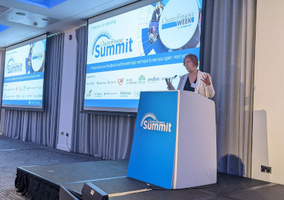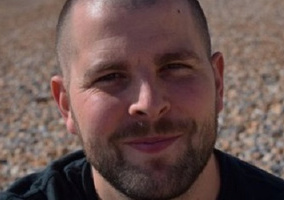Boards wanting to recruit working class trustees and those with lived experience must avoid “tokenism”, delegates at Getting on Board’s events heard last week.
Speakers discussed the barriers working class people face to trusteeship, such as being unaware of opportunities or lacking spare time to offer their services.
Delegates also heard how boards should avoid “tick boxing” in their inclusion of people with lived experience, and the benefits such trustees offer to charities.
Barriers to entry
Anaish Yilma-Parmar, legacy engagement manager at the British Heart Foundation, said class is a barrier to trusteeship.
He said one of the main reasons for having a board is to challenge the organisation, and for this to be done there needs to be different points of view.
Yilma-Parmar suggested boards should be looking for individuals who can bring diverse perspectives, as they form a collaboration of people to steer the organisation.
Sunday Blake, a trustee at Unite Foundation, said working class people are often not able to join boards because they do not have the luxury of free time.
She added there is no reason why a trustee board should not include some people who may have been a beneficiary.
For Blake, “class is the final unspoken issue” which “intersects with so many different identities”.
She said that even if a person has privileges elsewhere, if you are working class, you are still going to be marginalised.
Blake also described the “micro-stresses of being working class”, which can inhibit people from joining boards.
Both Yilma-Parmar and Blake discussed finding out about trusteeship by accident, having initially not been aware of the role.
Blake described never being told about the power and influence of a trustee, so the “first big block is knowing what a trustee is”.
Feeling like the ‘token’ working class person
Blake said boards should do more to make sure working-class trustees do not feel like “the token” person on a board.
She also advised “when a working-class person tells you something is classist, listen to them”.
David Lacey, who recently set up the group Working Class Fundraisers, said: “I think the sector is classist” and this partially traces back to its Victorian roots.
Lacey argued that “diversity in any guise is going to add value” and that working class people in particular must be represented as they are impacted by the majority of causes on which charities work.
Like Blake, Lacey spoke about the feeling working class people may experience of being “pigeonholed” in a “horrible power dynamic” on boards.
He said middle class people with power sometimes use working class people “to tick box” and miss out on the enormous amount of value working class people bring.
During a panel on how lived experience can enrich a boardroom, Nola Sterling, who works with the Criminal Justice Alliance, said tokenism can lead to a “massive imbalance”.
Importance of intersectionality
Other speakers discussed on a panel how they had successfully diversified their boards.
Caroline Taylor, chief executive of the Essex Community Foundation, said her board “were concerned about tokenism” so “were quite clear about the skills that they required”.
She added it was important to “understand the intersectionality between skill sets and protected characteristics”.
Fizza Qureshi, chief executive of the Migrants' Rights Network, said the board is going to be moving away from EDI which can be tokenistic, and move to anti-oppression, to allow it to be “much more than ticking the diversity box”.
Qureshi said board recruitment should focus on what intersections need to be considered, and what people “need to make space for”.
Lived experience on boards can have a ‘massively powerful effect’
Ambreen Shah defined lived experience as “people who have a direct personal impact” of what the charity is trying to tackle, and the knowledge and expertise people bring from this.
Speaker Robbie Crow was previously chair of a charity which due to restrictions in its constitution on who could be on the board, everyone had lived experience, which “had a massively powerful effect”.
Nonetheless, Crow said there were some strategic challenges “because we did not have that fine balance of professional skills” as it was a small charity and trustees had to be members – though “this is not to take away from the importance of having lived experience”.
Related Articles












